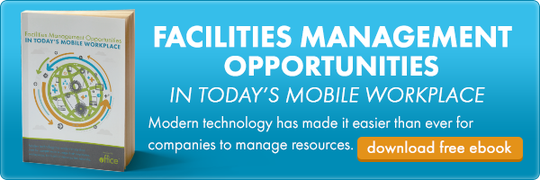The Facilities Manager Is a Multi-Faceted Player In Today’s Workplace


Just by very definition, the role of the facilities manager is multi-faceted. The International Facility Management Association (IFMA) defines facility management as: “a profession that encompasses multiple disciplines to ensure functionality of the built environment by integrating people, place, process and technology.”
Traditionally, the facility manager’s role was more about the brick and mortar–making sure desks were in their proper place, employees had the supplies they needed and that a customer’s first impression was a good one (just to name a few). As technology evolves, however, the FM’s role in the workplace has evolved as well. While their traditional roles are still intact, today’s facilities manager must be the cowboys of the 21st century, paving new paths through this digital age and ensuring their customers have access to the latest in information technology. With these tools evolving at such a rapid pace, it is no wonder facilities management is currently one of the fastest growing industries.
Jack of all trades
A successful facilities manager has always had to be a jack-of-all-trades–one that is able to make sometimes difficult decisions, delegate when necessary, implement new procedures and identify what current procedures are effective. Leaders in the FM profession must also exemplify top-notch networking and customer relations  skills. They must know how to communicate with every level of employee, all the way up to the executives, with exceptional listening skills so as to identify how to meet each person’s needs. Facilities turn to their FM to ensure that the day-to-day operations occur with little or no incident, so that all players can focus on their critical duties.
skills. They must know how to communicate with every level of employee, all the way up to the executives, with exceptional listening skills so as to identify how to meet each person’s needs. Facilities turn to their FM to ensure that the day-to-day operations occur with little or no incident, so that all players can focus on their critical duties.
While advances in technology over the past decade have further complicated the facilities managers role, they have also simplified it. Assuming you are dedicated to researching the latest in technological tools, and have the courage to make sure these tools are put into place, the facilities manager of 2014 has a wide range of options to meet their organization’s every needs.
Today’s FM Must Maximize Their Investments In Both Personnel and Physical Assets
An organization’s employees and their physical space are two of the largest investments. Facilities look to their FM to ensure that both assets are being utilized to their fullest capacity. They must ensure each employee has everything they need to produce to their fullest capability, which also means their physical assets must be running as efficiently as possible. And with the workforce evolving daily, this adds a whole other element to the FM’s job. Luckily, there are a number of tools at their disposal to aid them in these delicate tasks. Sifting through these tools to determine which ones are most relevant to their company’s needs can prove quite the challenge.
Those entering the workforce today expect a certain level of technological tools, providing them access to their workspace and associated services, all at a moment’s notice. And with many companies turning towards options such as telecommuting, remote work and hoteling, FMs are faced with yet another challenge. They must ensure the employees they serve have the ability to access necessary resources mobily. This is when facilities management software such as IWMS proves to be a wise investment. Space management software allows the FM to coordinate with HR and IT to ensure not only that the space is used to its fullest potential, but allows key players to forecast future needs and make changes accordingly. Collaboration amongst relevant departments ensures the proper equipment is in the proper space without delay, so no employee sits at their new desk without the proper equipment they need to be productive. For organizations with wider mobility needs, room reservation software supplies each user with the ability to determine what space is being utilized, allowing them to reserve the space they need to complete their work.
In addition to the employees’ physical space needs, the facility manager must implement a concrete system for ensuring the physical space (as well as all the functioning assets inside) is fully functional and maintained at all times. Software modules such as maintenance software allows for routine maintenance to be automated, while employees have the ability to create necessary service requests with ease. And with so many options at our fingertips today, ease of use is critical in ensuring tools are actually put to use. Proper maintenance of the physical space, as well as the tangible assets inside, not only ensures there is no downtime due to loss of use, it also protects the organization against unnecessary replacement costs.
Mobility Is Essential
In seeking to integrate new solutions into their facility’s workflow, FMs have the added element of mobility to consider. With so many employees working from home or on the road, today’s facilities manager must take mobility into account with every decision. Web-based software must, at the very least, be implemented. But as employees increasingly require access to relevant resources when away from the web, mobile apps are an important tool to consider. Mobile apps are rapidly replacing web solutions, as more people turn to their smart phones and tablets for information and technological support. This is reflected in recent reports, which show mobile apps outpacing the mobile web by a landslide. New trends and tools in office communication, such as mobile apps, only serve to increase productivity and should be strongly considered, when looking for solutions for more effective practices.
Forward thinking FMs embrace change by understanding that something new will always be around the corner. Some changes are massive, others slow and gradual, but change is always present. With so many tasks to manage, learning how to utilize your new tools to integrate into existing systems or help overhaul less effective practices is key for a successful FM.
